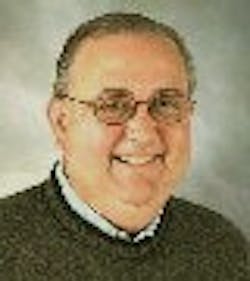Profession development kit?
As I write this, I am getting ready to address the St. Louis Section of ISA (home section of ISA President Steve Huffman) on the future of the automation profession. It goes without saying that I’m going to have to say some things about ISA.
I remarked many years ago that ISA is something less than a professional association, and more like a giant agglomeration of technical interest groups. That’s both true and not. ISA has the potential to be a professional association, and some of the leadership has not only seen this visio, but also is beginning to move the dinosaur in that direction.
What ISA could be is important, but equally important is why it should be.
Keith Larson, who writes the back page column in this magazine, once remarked to me that he hoped that ISA pulled out of its death dive, because if it didn’t, somebody would have to re-create it. I think he’s absolutely right.
In order for the automation profession to be successful and recognized as one of the most important disciplines in the entire world, ISA has to be successful at reinventing itself as the banner carrier for the automation profession.
Yes, there is an automation profession. It isn’t a branch of electrical engineering or IT. It isn’t necessary to be an engineer to be an automation professional. The automation profession is made up of engineers, technicians, scientists, technical marketing professionals and a significant number of people who just started doing it because their jobs required it and learned it by doing. All these people need legitimacy in their professional life, and that’s where ISA comes in.
ISA is necessary to the profession of automation because something has to give it the legitimacy it is never going to get otherwise. Automation is a discipline that is not strictly speaking an engineering discipline. My estimate is that less than 40% of automation practitioners are engineers by training. And I don’t mean low-level technicians and maintenance techs either. I mean full-fledged automation professionals—the ones that ISA’s Certified Automation Professional program should be aimed at.
ISA has spent way too long insisting that automation was an engineering discipline, when it clearly is not one, and yet it is more than one.
Automation is a multidisciplinary profession, attracting and keeping smart people from every type of educational and training background. It is seductively attractive, too. Many people agree wholeheartedly with my paraphrase of Dr. Summers’ comment: “Welcome to the Automation Hotel! You can come in but you can’t leave.”
I never expected to spend my career in automation, and in fact, I didn’t want to, but as I look back over the past thirty years, I wouldn’t have done anything else. I know many others like me. So do you.
So how do we transform this thing we all fell into, into a real profession? We need a profession development kit.
Over to you, ISA.


